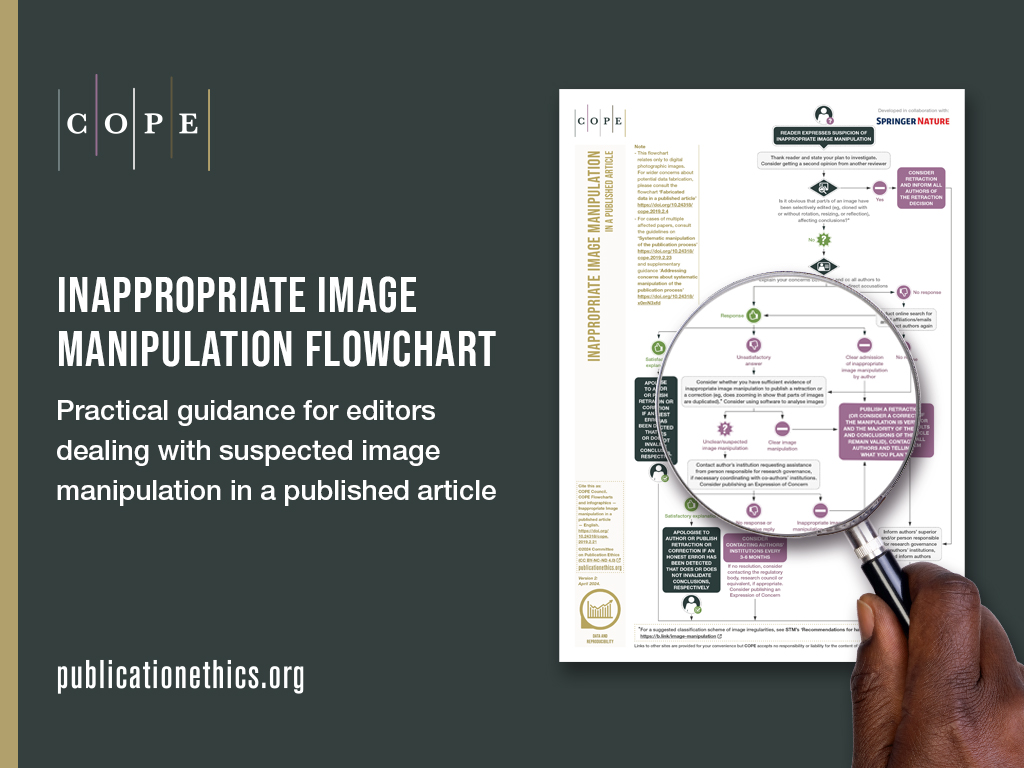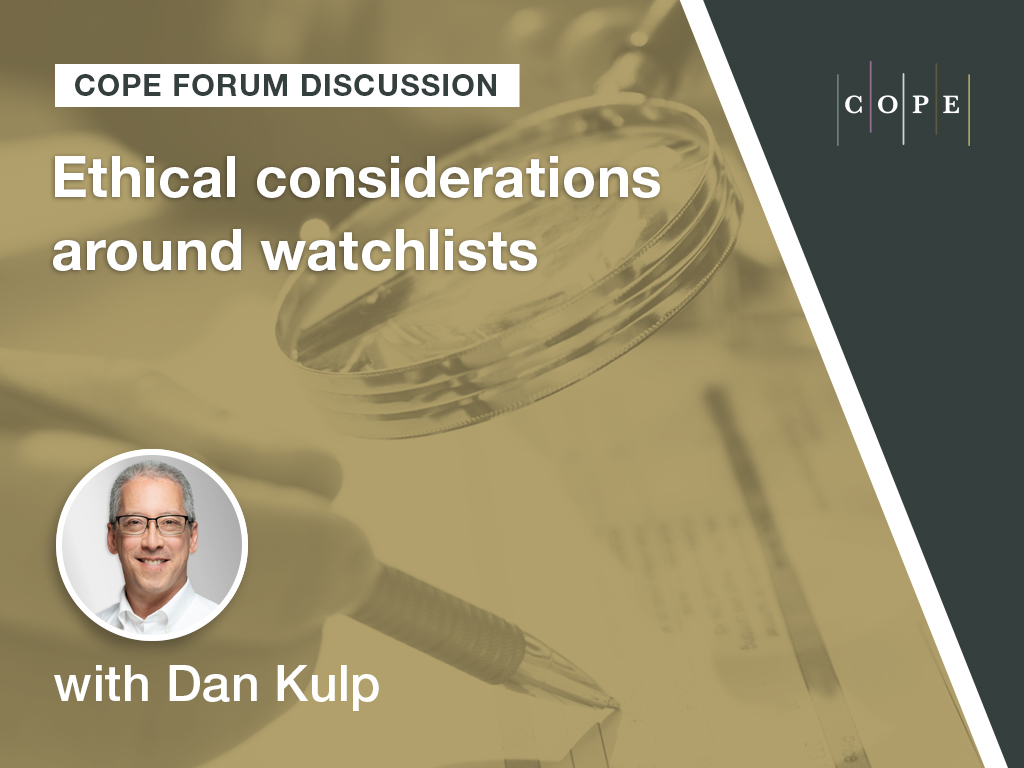COPE brings together all those involved in scholarly research and its publication to strengthen the network of support, education and debate in publication ethics
Our core practices
Core practices are the policies and practices journals and publishers need, to reach the highest standards in publication ethics. We include cases with advice, guidance for day-to-day practice, education modules and events on topical issues, to support journals and publishers fulfil their policies.
Guidance

New to this guidance are options for editors to publish retractions, expressions of concern, and corrections under certain conditions.
New to this guidance are recommendations around AI, potential conflicts of interest, and mentoring opportunities.
Updated guidelines with recommendations for research institutions and journals on cases of research integrity and publication misconduct.
What should an institution do when a journal raises a concern about research or publication integrity? New COPE flowchart offers a step-by-step process on handling the issue.
Discussion & events

Dan Kulp, COPE Chair, introduces the discussion: "Ethical considerations of using and maintaining watchlists". What are the potential benefits and harms of watchlists, and what should be put in place to reduce any risks?
Lightning talk focused on two areas of legal concern surrounding text recycling: copyright law and contract law. Publishers are encouraged to create clear and explicit contractual statements on re-use.
Ivan Oransky of Retraction Watch and Crossref's Ed Pentz join Trevor Lane to discuss how their partnership opens access to retractions data, and how publishers, authors and readers can use the data.
Corrections in inactive journals, authorship issue of a stolen case, and privacy of personal information. Cases from members discussed at the latest COPE Forum.